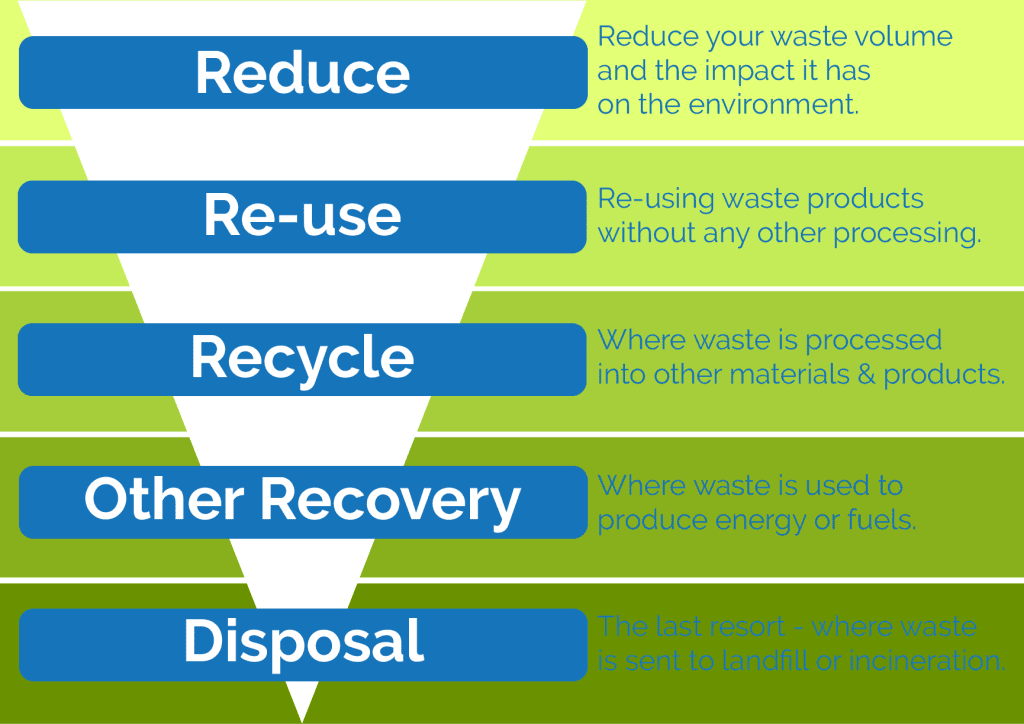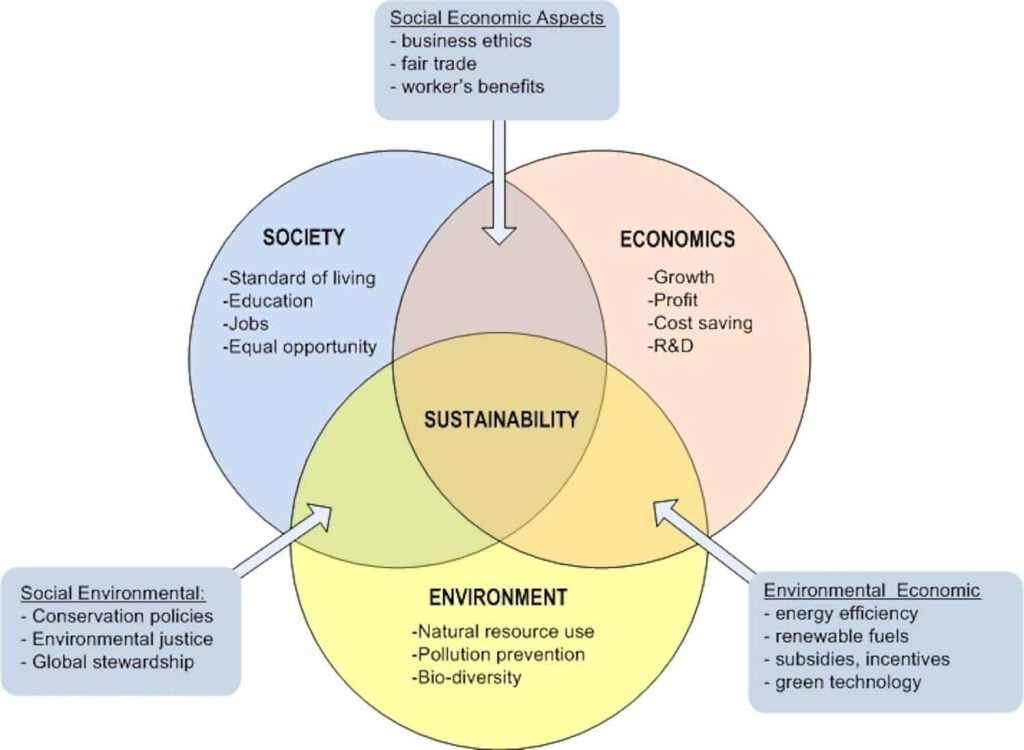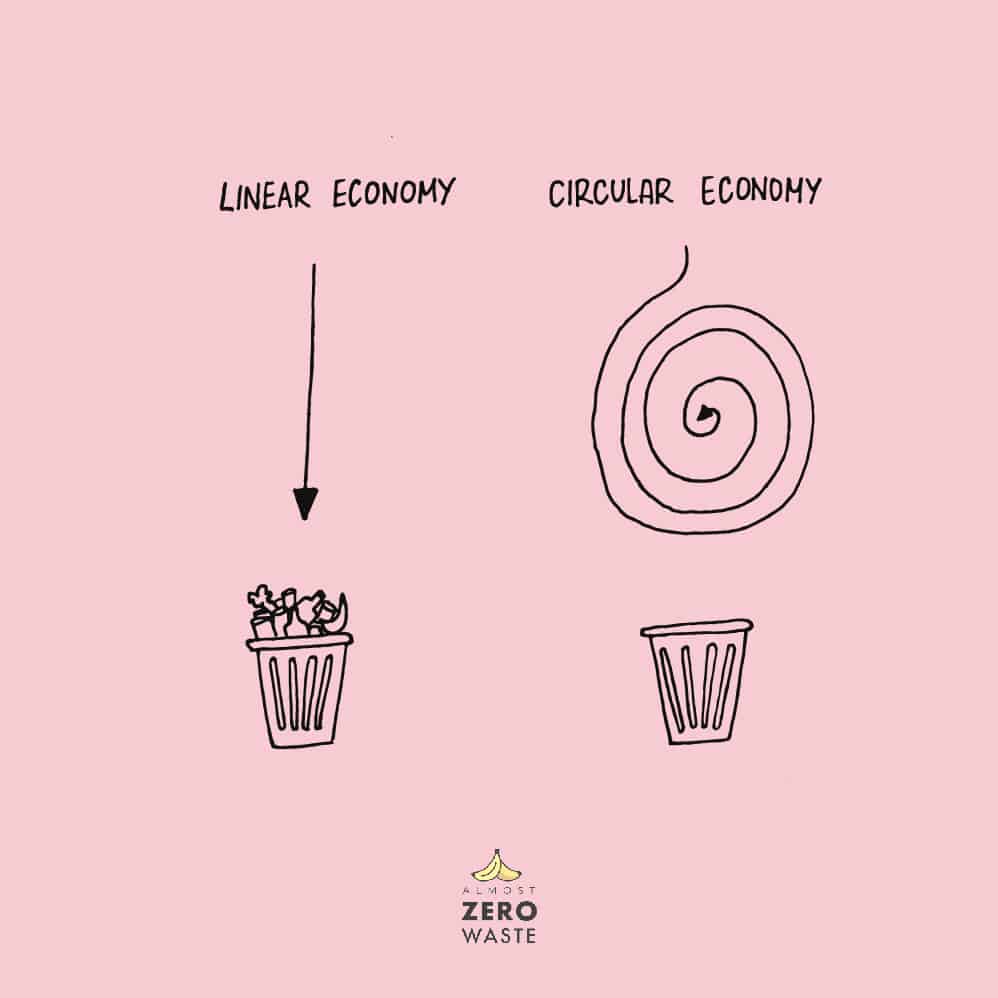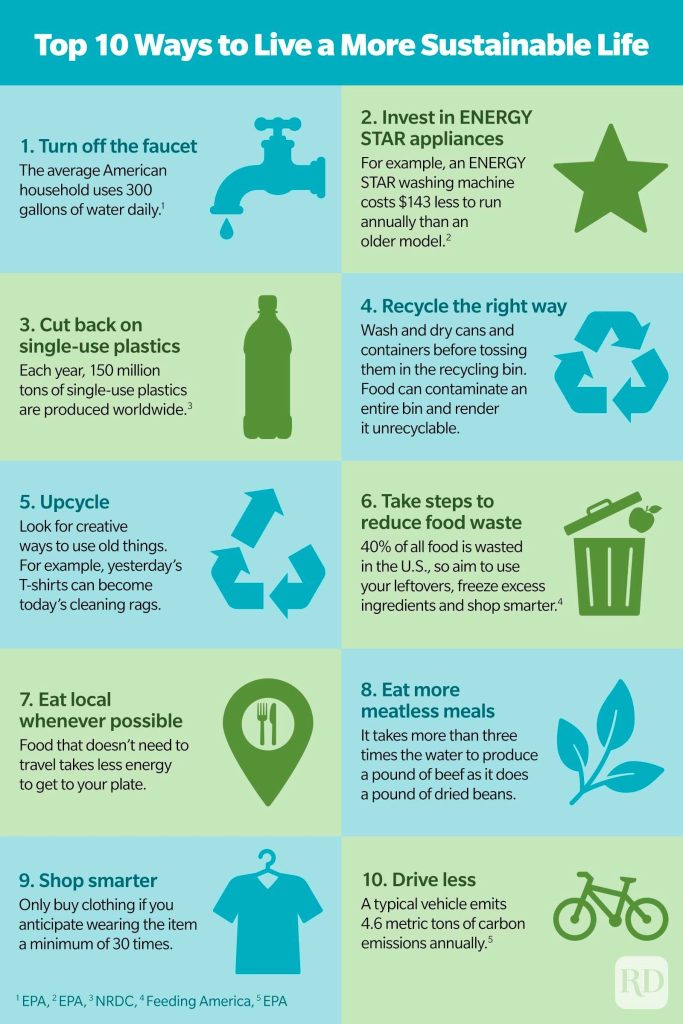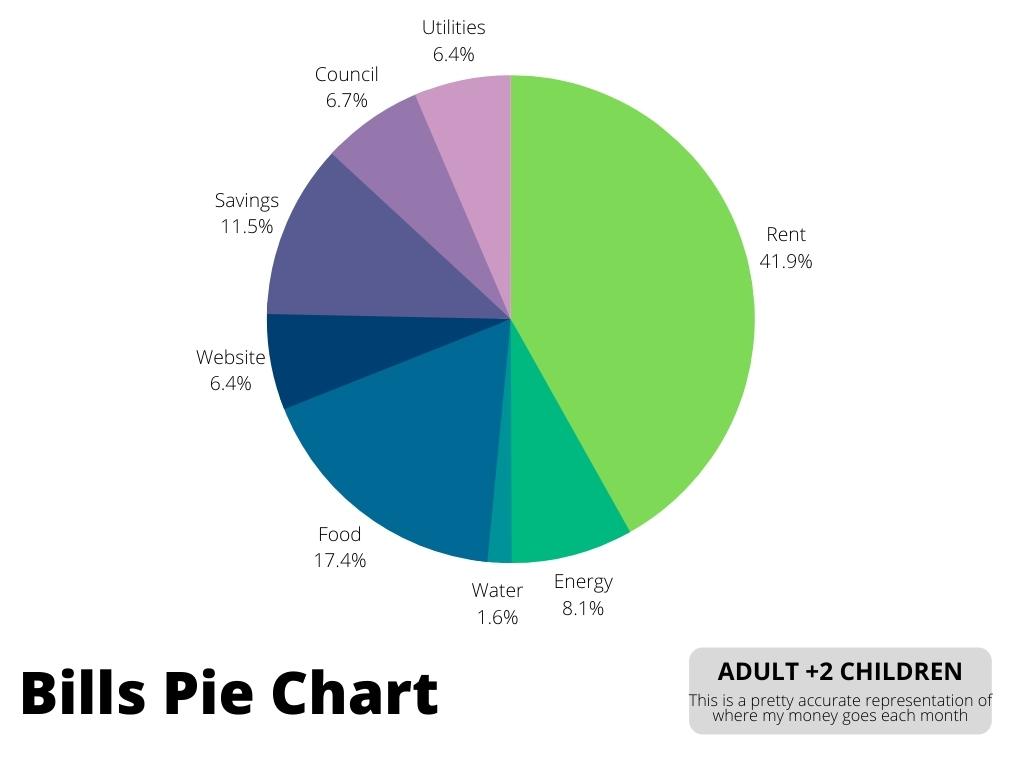How to achieve zero waste management? It’s a question that’s been on everyone’s minds lately as we become more aware of the impact our waste has on the environment. But fear not, because I’m here to guide you through the ins and outs of zero waste management in a fun and engaging way. Get ready to learn some practical tips and tricks that will help you reduce waste and live a more sustainable lifestyle.
Now, you might be thinking, “Why should I bother with zero waste management?” Well, let me tell you, the benefits are enormous. Not only will you be helping the planet by reducing the amount of waste that ends up in landfills, but you’ll also be saving money and living a healthier life. From composting kitchen scraps to embracing reusable products, there are so many simple changes you can make that will have a huge impact. So, grab your reusable water bottle and let’s dive into the world of zero waste management together!
Achieving zero waste management is an important goal for both individuals and communities. Here’s a step-by-step tutorial on how to get started:
- Educate yourself: Learn about the principles of zero waste and the importance of reducing, reusing, and recycling.
- Assess your waste: Conduct a waste audit to understand what you’re throwing away and identify areas for improvement.
- Reduce consumption: Minimize your use of single-use items and opt for reusable alternatives.
- Reuse and repurpose: Find creative ways to give new life to items that would otherwise be discarded.
- Recycle responsibly: Make sure you’re recycling correctly and supporting local recycling programs.
- Compost organic waste: Start a compost bin or participate in a community composting program to divert food scraps from the landfill.
- Spread the word: Share your zero waste journey with others and inspire them to make positive changes too.
Together, we can all work towards achieving a more sustainable future through zero waste management.
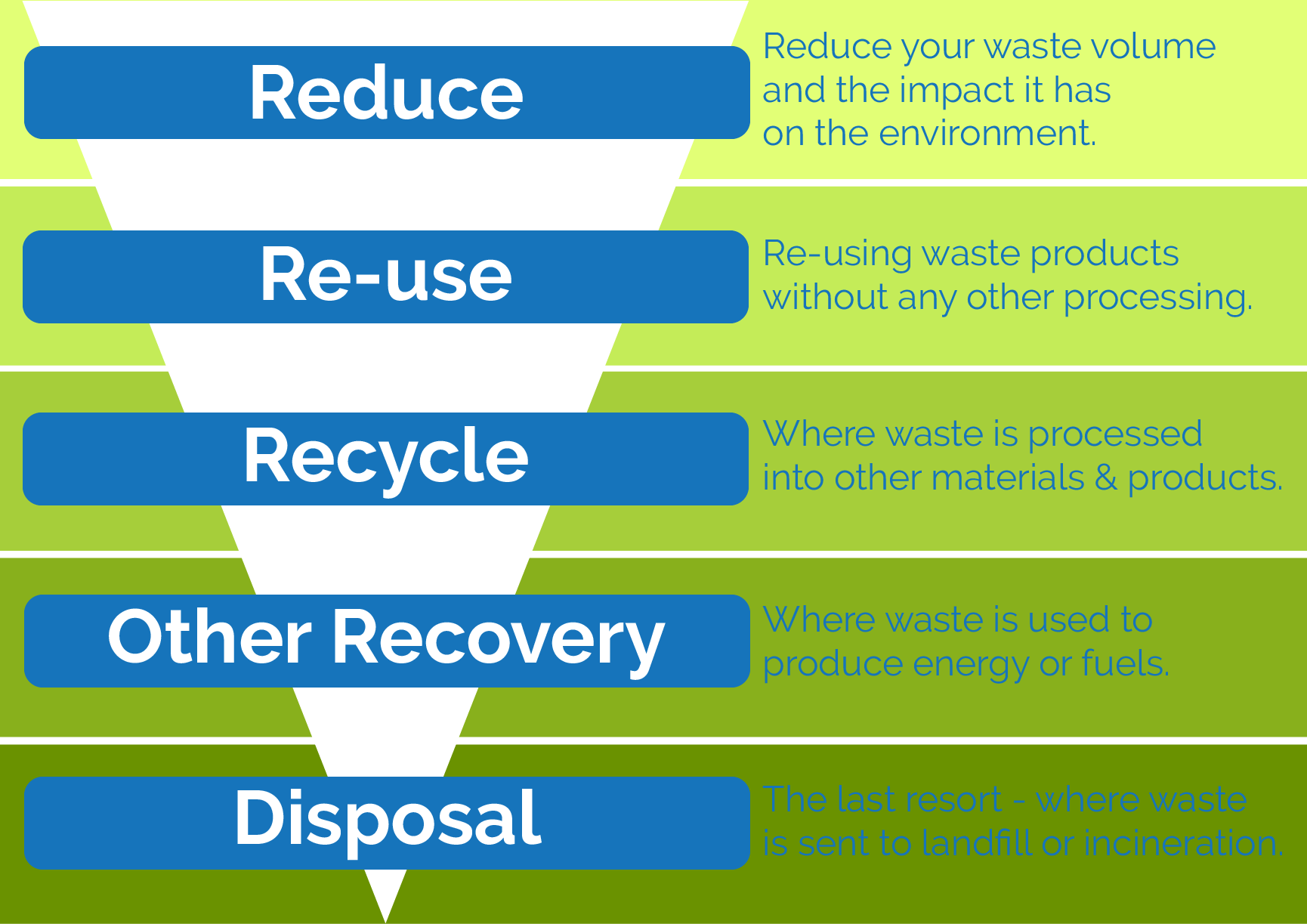
How To Achieve Zero Waste Management?
Zero waste management is an important concept that aims to minimize the amount of waste generated and maximize recycling and composting efforts. It is a sustainable approach that can have a significant positive impact on the environment and reduce our carbon footprint. In this article, we will explore various strategies and tips on how to achieve zero waste management.
The Benefits of Zero Waste Management
Implementing zero waste management practices can bring about a multitude of benefits. Firstly, it helps conserve natural resources by reducing the extraction and production of raw materials. By recycling and reusing items, we can minimize the need for new resources and reduce energy consumption. This, in turn, helps combat climate change and preserve ecosystems.
Secondly, zero waste management reduces the amount of waste that ends up in landfills or incinerators. Landfills emit harmful greenhouse gases, while incinerators release toxins into the air. By diverting waste from these disposal methods, we can improve air and water quality, protect public health, and create a cleaner environment for future generations.
Strategies for Achieving Zero Waste Management
1. Reduce and Reuse
One of the fundamental principles of zero waste management is to reduce the amount of waste generated in the first place. This can be achieved by adopting a minimalist lifestyle and making conscious choices when purchasing products. Avoid single-use items and opt for reusable alternatives instead. Choose products with minimal packaging or packaging that can be recycled.
Reusing items is another effective strategy. Consider repurposing containers, jars, and bags for storage or DIY projects. Donate or sell items that are no longer needed to give them a second life. By reducing and reusing, we can significantly decrease the amount of waste that goes into landfills.
2. Recycling and Composting
Recycling is a crucial component of zero waste management. Familiarize yourself with your local recycling guidelines and ensure that you are properly sorting and disposing of recyclable materials. This includes paper, plastic, glass, and metal. By recycling these materials, we can save energy, reduce pollution, and conserve natural resources.
Composting is another essential aspect of zero waste management. Instead of throwing food scraps and yard waste into the trash, composting allows these organic materials to decompose naturally and be transformed into nutrient-rich soil. This not only reduces waste but also enriches the soil and promotes healthier plant growth.
3. Educate and Raise Awareness
Education plays a vital role in achieving zero waste management. By spreading awareness about the benefits and strategies of waste reduction, recycling, and composting, we can inspire others to join the movement. Host workshops, seminars, or community events to share knowledge and practical tips. Engage with local schools, businesses, and organizations to promote sustainable practices and encourage participation.
Tips for Successful Zero Waste Management
1. Start Small
Embarking on a zero waste journey can be overwhelming, so it’s essential to start small. Begin by focusing on one area of your life, such as reducing plastic waste in your kitchen or implementing a recycling system in your home. As you become comfortable with these changes, gradually expand your efforts to other aspects of your lifestyle.
2. Make Sustainable Choices
When shopping, opt for products that are eco-friendly, sustainable, and packaged in recyclable or compostable materials. Choose to support local businesses and farmers’ markets, as they often have more sustainable practices. Consider investing in reusable alternatives, such as cloth bags, water bottles, and food containers.
3. Get Involved in Community Initiatives
Join local environmental organizations or community groups that are dedicated to promoting zero waste management. Participate in clean-up drives, recycling programs, and composting initiatives. By working together with like-minded individuals, you can create a more significant impact and inspire change on a broader scale.
In conclusion, achieving zero waste management is a collective effort that requires commitment, education, and sustainable choices. By implementing strategies such as reducing and reusing, recycling and composting, and raising awareness, we can work towards a more sustainable future. Start small, make conscious choices, and get involved in community initiatives to make a positive impact on the environment and achieve zero waste management.
Key Takeaways: How To Achieve Zero Waste Management?
- Reduce, reuse, and recycle to minimize waste.
- Compost organic waste to create nutrient-rich soil.
- Avoid single-use plastics and choose sustainable alternatives.
- Support local recycling programs and educate others about their importance.
- Embrace a minimalist lifestyle and make conscious consumer choices.
Frequently Asked Questions
What are the benefits of zero waste management?
Zero waste management offers numerous benefits for individuals, communities, and the environment. Firstly, it helps to conserve resources by reducing the amount of waste sent to landfills. This means that valuable materials can be reused or recycled, reducing the need for raw materials extraction. Secondly, zero waste management can create economic opportunities through the development of recycling industries and the creation of jobs in waste management and recycling. Furthermore, by minimizing waste and promoting sustainable practices, zero waste management can help mitigate environmental pollution and reduce greenhouse gas emissions.
In addition to the environmental and economic benefits, zero waste management also has social advantages. It promotes community engagement and participation, fostering a sense of responsibility and empowerment among individuals. Moreover, it encourages conscious consumerism and sustainable lifestyle choices, leading to healthier and more sustainable communities in the long run.
How can individuals contribute to zero waste management?
Individuals play a crucial role in achieving zero waste management. Here are some ways they can contribute:
1. Reduce waste generation by practicing mindful consumption and avoiding unnecessary purchases.
2. Reuse items whenever possible instead of buying new ones. This can be done through repairing, repurposing, or upcycling.
3. Recycle properly by following local recycling guidelines and ensuring that materials are sorted correctly.
4. Compost organic waste to divert it from landfills and create nutrient-rich soil for gardening.
5. Support businesses and organizations that promote zero waste practices.
By adopting these habits, individuals can significantly reduce their ecological footprint and contribute to a more sustainable waste management system.
What is the role of businesses in zero waste management?
Businesses have a crucial role to play in achieving zero waste management. Here are some key ways they can contribute:
1. Implement waste reduction strategies, such as minimizing packaging, using reusable materials, and adopting circular economy principles.
2. Establish recycling programs within their facilities and ensure proper sorting and disposal of waste.
3. Encourage employees to adopt sustainable practices both at work and in their personal lives.
4. Partner with local recycling facilities and organizations to ensure that waste is properly managed and recycled.
5. Educate customers about the importance of waste reduction and provide resources for responsible disposal and recycling.
By taking these steps, businesses can not only contribute to environmental sustainability but also enhance their reputation as socially responsible entities.
What role does government play in zero waste management?
The government plays a crucial role in promoting and implementing effective zero waste management strategies. Here’s how governments can contribute:
1. Develop and enforce regulations and policies related to waste management, recycling, and resource conservation.
2. Invest in infrastructure for waste management, such as recycling facilities, composting systems, and waste-to-energy plants.
3. Provide financial incentives and support for businesses and individuals adopting zero waste practices.
4. Educate the public about waste reduction, recycling, and proper waste disposal through awareness campaigns and educational programs.
5. Collaborate with other stakeholders, such as businesses, non-profit organizations, and communities, to achieve collective goals in waste reduction and resource conservation.
Through these efforts, governments can create an enabling environment for zero waste management and drive sustainable change at a larger scale.
What are some innovative approaches to zero waste management?
As the need for sustainable waste management grows, innovative approaches are emerging. Some of these include:
1. Zero waste communities: These are communities that strive to achieve zero waste goals collectively by implementing waste reduction strategies, promoting recycling, and fostering a culture of sustainability.
2. Zero waste events: Event organizers are adopting practices such as composting, recycling, and using reusable materials to minimize waste generated during festivals, conferences, and other gatherings.
3. Waste-to-energy technologies: Advanced technologies are being developed to convert waste into energy through processes like anaerobic digestion and incineration with energy recovery.
4. Circular economy models: The concept of a circular economy aims to eliminate waste by designing products that can be easily repaired, recycled, or repurposed at the end of their life cycle.
5. Extended producer responsibility: This approach holds manufacturers accountable for the entire life cycle of their products, including the management of waste generated from their products.
By embracing these innovative approaches, we can move closer to achieving zero waste management and creating a more sustainable future.
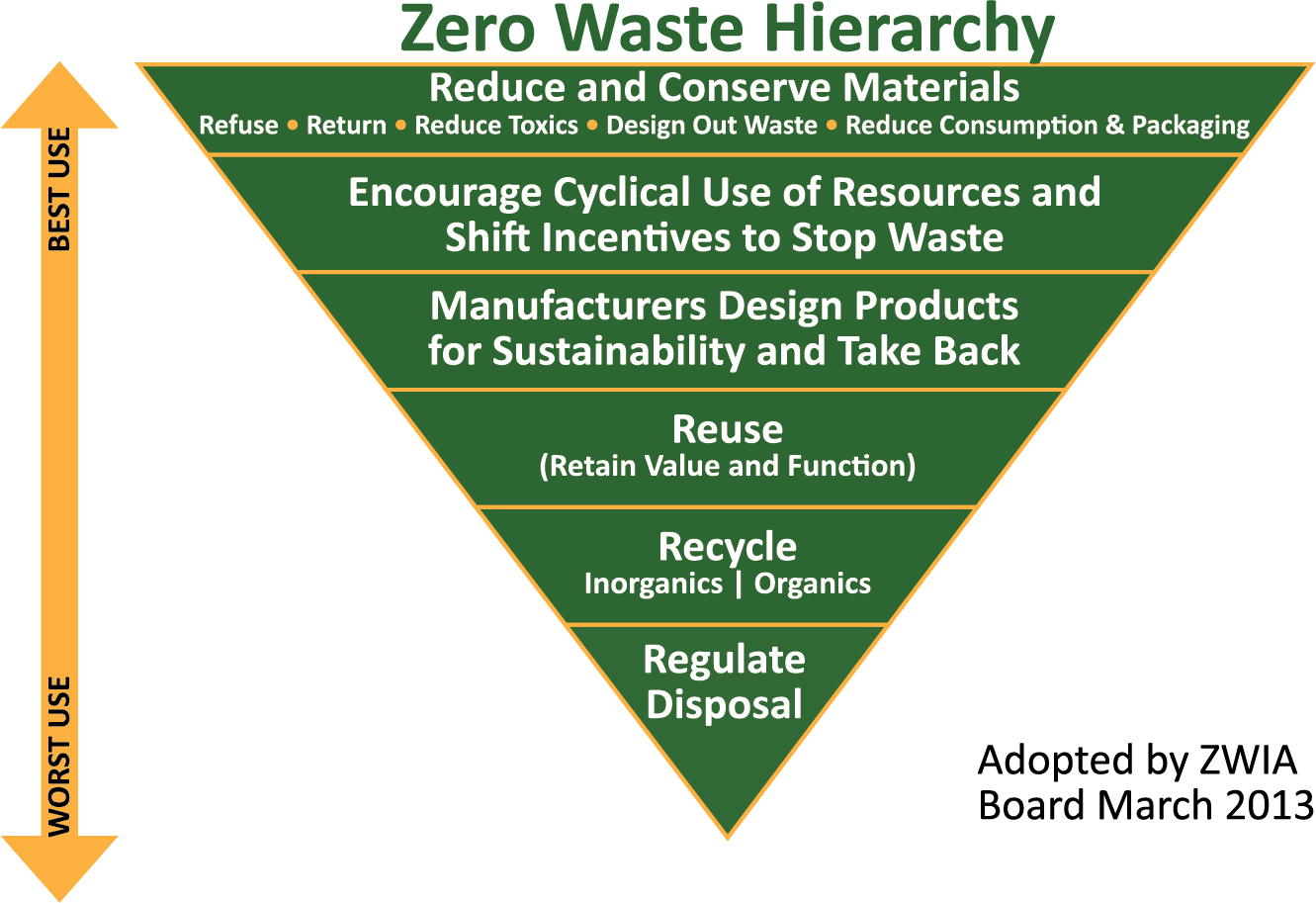
How San Francisco Is Becoming A Zero Waste City
Final Summary: Achieving Zero Waste Management – A Sustainable Solution
In this day and age, where environmental consciousness is more important than ever, achieving zero waste management has become a crucial goal for individuals, communities, and governments alike. By implementing sustainable practices and adopting a circular economy mindset, we can significantly reduce waste and make a positive impact on our planet.
One key aspect of achieving zero waste management is through effective recycling and composting. By separating our waste into different categories and ensuring proper disposal, we can divert a significant amount of waste from landfills. Recycling materials such as paper, plastic, glass, and metal not only conserves resources but also reduces the energy required for their production. Composting organic waste, on the other hand, allows us to create nutrient-rich soil that can be used to nourish plants, closing the loop in the natural cycle of life.
Another crucial step in achieving zero waste management is to prioritize the reduction of waste at its source. This can be done through conscious consumer choices, such as opting for reusable products instead of single-use items. By embracing the mantra of “reduce, reuse, and recycle,” we can minimize our environmental footprint and contribute to a more sustainable future. Additionally, supporting businesses and organizations that prioritize waste reduction and sustainable packaging can further drive positive change on a larger scale.
In conclusion, achieving zero waste management requires a collective effort from individuals, communities, and governments. By adopting sustainable practices, such as recycling, compost

